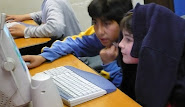Marketable products at Telecentres?
If the services / products offered at telecentres are not marketable, how do you expect to earn money?
The majority in the world provide Computer services, Photocopy, Printing, Photo-printing...and also telephone calls at very remote areas. But the list is quite narrow, unfortunately in majority places. Nevertheless, the happy news is there are places offer an exciting packages. Following is a list generated through research interviews:
Information: agricultural practices, public health and technology information, weather forecasts, travel schedules, government schemes. D.Net in Bangladesh already offers an example of a pay for use telecentre information service.
Employability: there are increasing examples of telecentres focusing on employability services, training people in specific skills needed to get a job and helping them with job seeking. As this has an economic benefit to the community members, they are willing to pay for this service.
Business process outsourcing: at least two initiatives have emerged so far with the intent of using telecentres as platforms for business process outsourcing. The telecentre provides local people with a place to earn an income and increase digital skills, and the local telecentre manager generates income either through access fees or a percentage of the money earned from the job.
eGovernance: this includes transactional services like land records, passport applications, government applications and submitting complaints to officials. These can become an economic driver for telecentres if proper revenue sharing arrangements can be made with governments.
Education: most telecentres already offer – and charge for – ICT skills training, which in turn generates demand for other services they offer. Some telecentres are moving into other education services including vocational skills and literacy.
Retailing: some telecentres in India and Latin America have proposed the idea of operating as retail outlets, either directly or by becoming an order point and shipping destination for ecommerce. Some of these proposals focus on socially beneficial products like environmentally friendly cooking stoves. Tarahaat in India sell energy saving bulbs, while they offer sewing machine training at Tarakendras (telecentres).
There are also a large number of purely economic services that telecentres can – and should – consider offering when the conditions are right. Entertainment is the most obvious example. Computer games, movie showings and digital photography all have significant revenue potential for telecentres. Also, basic access services like Voice-Over-Internet (VOIP) long distance calling and e-mail access for tourists in rural areas can be big revenue drivers. Services like these can be used to cross subsidize more socially oriented services.








